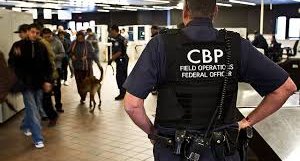US State Dept Plans to Gather Social Media Info & Email Addresses from Certain Visa Applicants of All Countries

Openclipart, Stylized Eye
On May 4, 2017, the U.S. State Department proposed that the government now be able to request all social media information, email addresses and phone numbers of visa applicants from any and all countries, whom they choose to subject to additional scrutiny. Claiming an “emergency”, the US State Department provided less than two weeks for public comment, up to May 18, 2017. See 82 Fed.Reg. 84 (May 4, 2017).
In addition to requesting all social media information, email and phone numbers for the past five years, the US State Dept would also request information on all siblings, children, spouses, former spouses, and civil or domestic partners, and 15 years employment and residence history. The government would also request 15 years of the applicant’s travel history, including the source of funding for each trip, among other information.
The US State Department has provided the following information for those who want to comment on the proposed rule:
” • Email: oira_submission@ omb.eop.gov. You must include the DS form number (if applicable), information collection title, and OMB control number in the subject line of your message. • Fax: 202–395–5806. Attention: Desk Officer for Department of State. You may submit comments to Bureau of Consular Affairs, Visa Office by the following methods: • You may submit comments to Bureau of Consular Affairs, Visa Office by the following methods: • Web: Persons with access to the Internet may comment on this notice by going to www.Regulations.gov. You can search for the document by entering ‘‘Docket Number: DOS–2017–0019’’ in the Search field. Then click the ‘‘Comment Now’’ button and complete the comment form. • Email: PRA_BurdenComments@ state.gov. You must include Emergency Submission Comment on ‘‘Supplemental Questions for Visa Applicants’’ in the subject line of your comment.”



